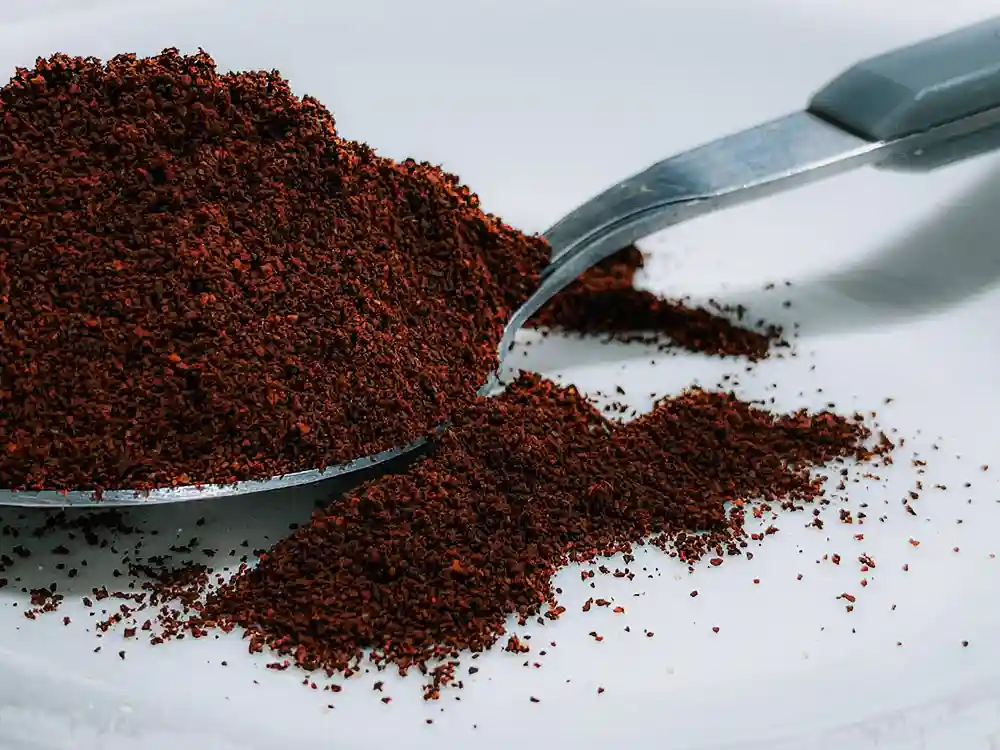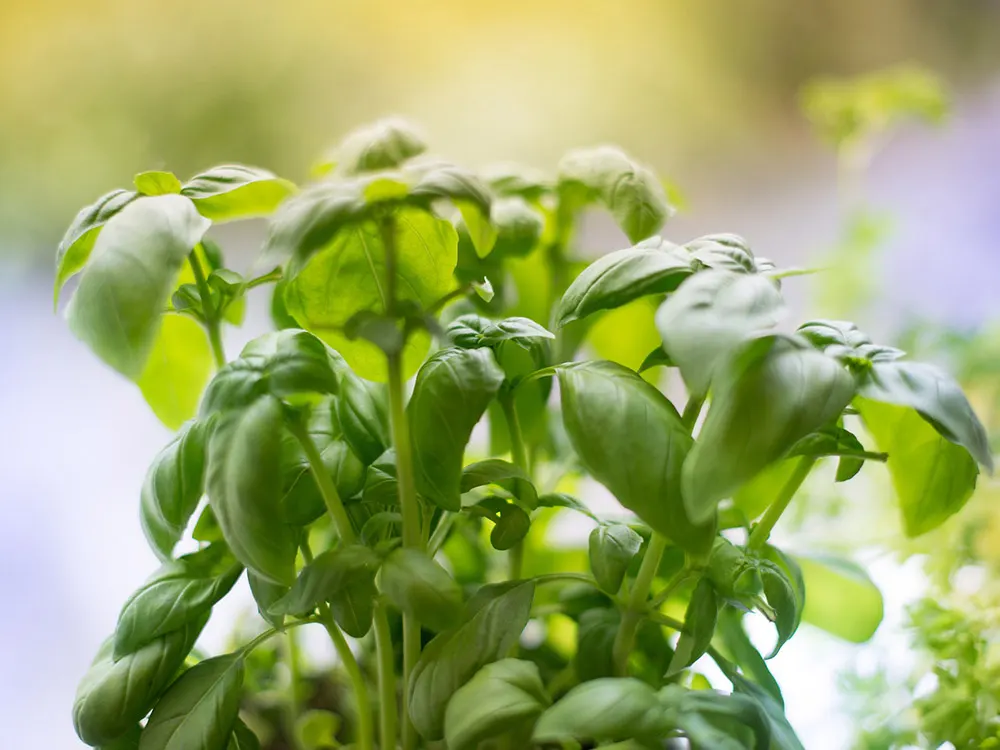Herb Gardening
Best Fertilizer for Basil: Secrets for a Flavor-Packed Harvest
If you’re looking to grow lush, flavorful basil plants, you’ve come to the right place. The secret to thriving plants is the right fertilizer for basil. In this article, we’ll dive into the best options, whether you’re a fan of homemade concoctions, natural solutions, or store-bought products.
What is the Best Fertilizer for Basil
Whether you decide to grow basil from seed or start your basil plants from cuttings, it’s important to understand that the N-P-K ratio plays a vital role in determining the effectiveness of a fertilizer for your basil plants.
Nitrogen (N), phosphorus (P), and potassium (K) are the three primary macronutrients that plants need to grow and thrive.
Understanding the N-P-K ratio is crucial
Each nutrient has a specific function in the plant’s growth and development:
| Nutrient | Benefits for Basil | Sources |
|---|---|---|
| Nitrogen (N) | Promotes leafy growth and green color | Blood meal, fish emulsion, coffee grounds |
| Phosphorus (P) | Supports strong root development and overall plant health | Bone meal, composted chicken manure, bat guano |
| Potassium (K) | Enhances resistance to pests and diseases, supports overall plant health | Wood ash, compost, seaweed extract |
Choosing the right fertilizer for your basil.
Basil plants require a higher proportion of nitrogen in comparison to phosphorus and potassium, as nitrogen is crucial for their leafy growth. An ideal N-P-K ratio for basil would be 2-1-2 or 3-1-2. This means that the fertilizer contains twice or thrice the amount of nitrogen compared to phosphorus and potassium.
These products are available in various forms, such as granules, liquids, or spikes, depending on your preference and gardening style.
Always read the label and follow the manufacturer’s instructions regarding application rates and frequency to ensure optimal results.
Best Selling Fertilizers for Basil
Monitoring your plant’s health and adjusting the N-P-K ratio
It’s essential to observe your basil plants closely and make adjustments to the fertilizer’s N-P-K ratio based on their needs.
If your basil plants appear light green or yellow and have slow growth, they might need more nitrogen. On the other hand, if the plants exhibit weak stems or poor root development, consider increasing phosphorus levels.
By understanding the N-P-K ratio and its significance, you can make well-informed decisions to keep your basil plants healthy and productive.
Homemade Fertilizer for Basil

Making your own fertilizer can be fun and rewarding
There’s something special about using homemade fertilizer for basil. Not only does it save you money, but it’s also an eco-friendly option. Some common ingredients you can use include coffee grounds, eggshells, compost tea, and fish emulsion.
- Coffee grounds provide a nitrogen boost, essential for basil’s leafy growth. Be sure to only fertilize with used coffee grounds around the base of your plant, and let nature do the rest. Use sparingly!
- Eggshells are a great source of calcium, which helps strengthen cell walls. Crush them up and mix them into the soil.
- Compost tea is a nutrient-rich liquid made by steeping compost in water. It’s like giving your basil a vitamin-packed energy drink!
- Fish emulsion is an excellent all-around fertilizer, providing nitrogen, phosphorus, and potassium.
A personal experience with homemade fertilizer
I remember when I first experimented with homemade fertilizer for basil. I used a compost tea and the results were amazing! My basil plants grew so much faster and had larger leaves than before. If you’re looking for a simple, cost-effective option, give homemade fertilizers a try.
Natural Fertilizer for Basil
Going natural has its advantages
Using natural fertilizer for basil is an excellent option if you’re looking to minimize your environmental impact. Some popular natural fertilizers include worm castings, seaweed extract, and bat guano.
Worm castings are the nutrient-rich waste, vermicompost, produced by worms as they break down organic material. They’re a fantastic source of nutrients and can help improve your soil’s structure.
Seaweed extract is rich in trace minerals that promote strong root development and overall plant health. Plus, it’s a renewable resource!
Bat guano is an all-natural fertilizer that provides nitrogen, phosphorus, and potassium. It also contains beneficial microbes that help break down organic matter in the soil.
A little goes a long way.
A small amount of worm castings or seaweed extract can make a significant difference in the basil’s growth and overall health. Just remember that with natural fertilizers, a little goes a long way, so don’t overdo it.
- SEAWEED USABLE BY PLANTS: Derived from organic Ascophyllum Nodosum Seaweed which naturally contains carbohydrates, micro-nutrients, and organic matter!
Best Fertilizer for Basil in Containers
Container-grown basil has its own unique needs
Growing basil plants in containers is a great option, especially if you’re short on space. Using containers is also a great way to grow basil from cuttings. However, container-grown plants often require a different approach to fertilizing.
Some of the best fertilizer for basil in containers includes water soluble fertilizers, slow-release granular fertilizers, and fertilizer sticks.
Water soluble fertilizers are easy to apply and quickly absorbed by the plant. They’re perfect for container gardening because you can control the nutrient concentration.
Slow-release granular fertilizers gradually release nutrients into the soil, providing a steady supply of food for your basil. This can help prevent over- or under-fertilizing.
Lastly, fertilizer sticks are a convenient, mess-free option that you simply push into the soil.
Remember to adjust your watering routine.
One thing to keep in mind is that container-grown basil may require more frequent watering, as containers tend to dry out quickly. Just be careful not to overwater, as basil roots don’t like being too wet.
Fertilizer for Basil Indoors
If you’re growing basil indoors, you’ll need to consider some unique factors when it comes to fertilizing.
Indoor basil plants need special care
One key point is that indoor basil plants typically need less fertilizer than outdoor plants, as they’re not exposed to the same environmental stressors.
Best practices for fertilizing indoor basil.
To keep your indoor basil plant healthy, start by using a gentle, balanced fertilizer, such as a 10-10-10 or 5-5-5 formulation. Apply the fertilizer at half the recommended strength, as indoor herb gardens are more susceptible to over-fertilization.
Monitor your plant’s health, and adjust the fertilizer application frequency accordingly. For most indoor basil plants, fertilizing once every four to six weeks should be sufficient.
Organic Fertilizer for Basil

Using organic fertilizer for basil is an excellent choice if you’re concerned about the environment and the quality of your herbs.
Organic options offer unique benefits
Organic fertilizers are derived from natural sources and are free of synthetic chemicals. Some popular organic fertilizer options include blood meal, bone meal, and composted chicken manure.
Blood meal is a high-nitrogen fertilizer that promotes leafy growth, making it perfect for basil.
Bone meal provides phosphorus, which supports strong root development and overall plant health.
Composted chicken manure is a well-rounded organic fertilizer that provides a balanced mix of nutrients, including nitrogen, phosphorus, and potassium.
Final Thoughts
In conclusion, choosing the best fertilizer for basil depends on your personal preferences and gardening goals. Whether you prefer homemade, natural, or store-bought options, the key is to provide your basil plants with the nutrients they needs to thrive.
By carefully considering your plant’s needs and experimenting with different fertilizers, you’ll be well on your way to growing a healthy, productive basil plants. Don’t forget to make some basil pesto! Happy gardening!
FAQ: Best Fertilizer for Basil
Do basil plants like Epsom salt?
Yes, basil plants can benefit from Epsom salt. It provides magnesium, which helps in the production of chlorophyll and improves nutrient absorption. Mix 1 tablespoon of Epsom salt with a gallon of water, and spray or water your basil plants once a month.
How do you enrich basil soil?
Enrich basil soil by adding compost, aged manure, or worm castings. These organic materials improve soil structure, provide essential nutrients, and promote healthy root growth. Mix them into the top few inches of soil before planting or top-dress existing plants.
How often to use coffee grounds as fertilizer?
Use coffee grounds as a fertilizer for basil every two to four weeks. Sprinkle used, dry coffee grounds around the base of the plant, and water it in. The grounds release nitrogen slowly, promoting healthy leaf growth.
How do you make basil greener?
To make basil greener, ensure it has adequate sunlight, consistent watering, and proper fertilization. Use a balanced fertilizer with a higher nitrogen content to promote leafy growth. Also, consider adding Epsom salt to provide magnesium, which aids in chlorophyll production.
Why doesn’t my basil plant look healthy?
An unhealthy basil plant may be due to inadequate light, improper watering, poor soil, or pest infestations. Ensure your basil gets at least 6 hours of sunlight, water it consistently without overwatering, and provide nutrient-rich soil. Check for pests and treat them accordingly.










